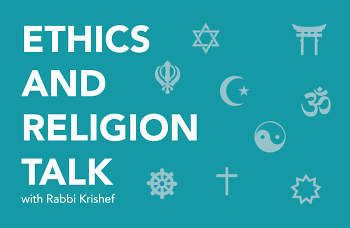Linda Knieriemen, Senior Pastor at First Presbyterian Church in Holland, responds:
Discussing religious difference brings out the worst in humans unless there are ground rules— implied or concrete. Just today I was in a situation where I had significant difference of opinion from the person speaking around a lunch table. I chose to not engage with an alternative opinion because it was clear that the speaker was only interested in promoting her point of view. I listened quietly, trying to understand her point of view and the context it was coming from.
If it’s understood that differences of perspective will not be judged or ridiculed but rather respected in an ‘agree to disagree’ way, dialogue can be useful both in understanding another and in better articulating and understanding ones own.
So ground rules could include these:
- Deep listening
- Assured respect for all viewpoints
- Use of “I statements”
- No judgement of opposing views
- Views presented without intend to convert but rather to inform
- Probing for areas of agreement
Rev. Ray Lanning, a retired minister of the Reformed Presbyterian Church of North America, responds:
As someone with years of experience with argument and debate, I would say the first ground rule is to recognize their limited value and usefulness. As the apostle Paul advises, “Avoid foolish questions and genealogies, and contentions, and strivings about the law; for they are unprofitable and vain” (Titus 3:9). Think carefully before you start or allow yourself to be drawn into a religious quarrel. Much harm can be done, and little good ever results from these verbal contests.
The proper context for argument and debate is in the courts or assemblies of the church. There (hopefully) they are part of colloquium doctum, “the discourse of the learned,” whose character, knowledge, training, and experience give substance and weight to what they say. In such a context there are rules of debate, and a moderator to see that those rules are followed. One example from the New Testament is the report of the first synod of the apostolic church in Acts 15, convened to address the question of whether Gentile Christians must be circumcised “after the manner of Moses” in order to be saved.
Unfortunately, Americans are treated to the quadrennial spectacle of what are mistakenly called “the Presidential debates.” These campaign events are only forums for candidates to boost their policies, make extravagant promises, and launch verbal attacks on opponents. Paul describes such verbal slugfests as “biting and devouring one another” (Galatians 5:15), and cites them as violations of the Second Great Commandment, “Thou shalt love thy neighbor as thyself” (Leviticus 19:18; Matthew 22:39).
Fred Stella, the Pracharak (Outreach Minister) for the West Michigan Hindu Temple, responds:
Yes. Don’t start one. The only debates I will engage in are those that involve the more mundane aspects of religion, not the transcendental. That is, I will argue for certain social justice issues or the proper way to engage community members. But if you are talking reincarnation vs. resurrection, the nature of the soul or the real or imagined divinity of an individual, count me out. Humanity has wasted millions of hours on attempting to prove the unprovable.
Some religions are concerned that belief in incorrect theology may have dreadful consequences for person. But Hinduism is not belief oriented. In our scriptures it is quite clear that God doesn’t add demerits for holding “wrong” viewpoints on religion.
The Rev. Sandra Nikkel, head pastor of Conklin Reformed Church, responds:
We have no set rules except for the rules of self respect and appreciation for one another. We each have deep convictions and diverse viewpoints but we all agree to disagree as we listen attentively to one another and are thankful for the freedom of expression we enjoy in this country. Furthermore, we hope our readers enjoy different experiences and our diverse theological points of view.
The Reverend Colleen Squires, minister at All Souls Community Church of West Michigan, a Unitarian Universalist Congregation, responds:
My personal ground rule is not to enter into religious arguments or debate with anyone. That being said, I am not always successful at avoiding this type of argument. If, however, someone is misrepresenting Unitarian Universalism I will absolutely speak up. Our faith is often misunderstood, and I do feel obligated to clarify our beliefs or stance.
My response:
When entering into a conversation with someone who is not Jewish, my basic rule is that I will talk to you about anything as long as the other person’s intent is to learn, not to try to convert me. My second rule is that the conversation should be respectful, that each person should be practicing deep listening and should not take the worst behavior of someone from the other person’s tradition and assume it to apply to all.
When speaking to people from my own tradition, I am more willing to engage with persuasive arguments, but the second rule still applies. Mean-spirited attacks and sarcasm will end the conversation.
This column answers questions of Ethics and Religion by submitting them to a multi-faith panel of spiritual leaders in the Grand Rapids area. We’d love to hear about the ordinary ethical questions that come up in the course of your day as well as any questions of religion that you’ve wondered about. Tell us how you resolved an ethical dilemma and see how members of the Ethics and Religion Talk panel would have handled the same situation. Please send your questions to [email protected].
The Rapidian, a program of the 501(c)3 nonprofit Community Media Center, relies on the community’s support to help cover the cost of training reporters and publishing content.
We need your help.
If each of our readers and content creators who values this community platform help support its creation and maintenance, The Rapidian can continue to educate and facilitate a conversation around issues for years to come.
Please support The Rapidian and make a contribution today.
